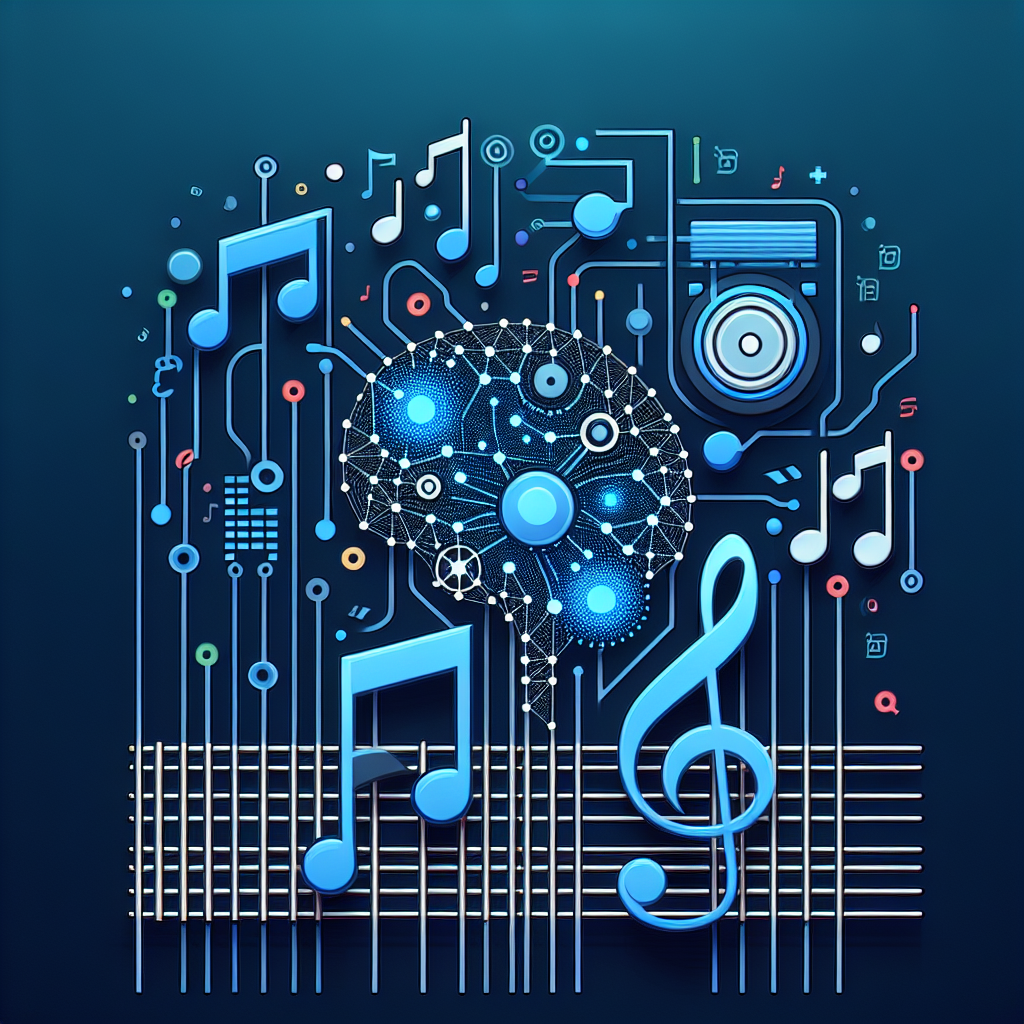Artificial Intelligence (AI) and machine learning have revolutionized many industries, and the music industry is no exception. In recent years, AI and machine learning technologies have been increasingly used in music analysis, allowing for new insights, creative possibilities, and enhanced user experiences. From analyzing music patterns and genres to creating personalized playlists and recommending new music, AI and machine learning have the potential to shape the future of music consumption.
One of the key areas where AI and machine learning are making an impact in music analysis is in the field of music recommendation systems. These systems use algorithms to analyze users’ listening habits, preferences, and interactions with music platforms to provide personalized recommendations. By analyzing vast amounts of data, these systems can identify patterns and similarities between different songs, artists, and genres, allowing them to suggest new music that users are likely to enjoy. This not only helps users discover new music but also helps artists reach new audiences and increase their visibility.
Another important application of AI and machine learning in music analysis is in the creation of music playlists. These algorithms can analyze the characteristics of different songs, such as tempo, key, and mood, to create playlists that flow seamlessly from one song to the next. This can help users create playlists for different occasions, moods, or activities, enhancing their listening experience and making it more enjoyable and engaging.
AI and machine learning are also being used to analyze music patterns and genres, helping musicologists and researchers better understand the underlying structures and relationships between different types of music. By analyzing large datasets of music, these algorithms can identify common patterns, themes, and trends, providing valuable insights into the evolution of music over time.
In addition to music recommendation systems, playlist creation, and music analysis, AI and machine learning are also being used in other areas of the music industry, such as music composition, production, and performance. For example, AI algorithms can be used to generate new musical compositions based on existing songs or styles, allowing artists to explore new creative possibilities and push the boundaries of traditional music genres. These algorithms can also be used to analyze and improve the quality of music recordings, helping artists and producers enhance the sound and production value of their music.
Overall, the use of AI and machine learning in music analysis has the potential to revolutionize the way we consume, create, and interact with music. By harnessing the power of these technologies, the music industry can provide users with more personalized and engaging music experiences, help artists reach new audiences, and unlock new creative possibilities for the future of music.
FAQs:
Q: How does AI and machine learning analyze music patterns and genres?
A: AI and machine learning algorithms analyze large datasets of music to identify common patterns, themes, and trends. By analyzing the characteristics of different songs, such as tempo, key, and mood, these algorithms can categorize music into different genres and styles, providing valuable insights into the underlying structures and relationships between different types of music.
Q: How do music recommendation systems work?
A: Music recommendation systems use algorithms to analyze users’ listening habits, preferences, and interactions with music platforms to provide personalized recommendations. By identifying patterns and similarities between different songs, artists, and genres, these systems can suggest new music that users are likely to enjoy, helping them discover new music and increase their engagement with music platforms.
Q: Can AI algorithms create new musical compositions?
A: Yes, AI algorithms can generate new musical compositions based on existing songs or styles. By analyzing the characteristics of different songs and genres, these algorithms can create new music that is inspired by the patterns and themes of existing music, allowing artists to explore new creative possibilities and push the boundaries of traditional music genres.
Q: How are AI and machine learning used in music production?
A: AI and machine learning algorithms can be used to analyze and improve the quality of music recordings, helping artists and producers enhance the sound and production value of their music. By analyzing the characteristics of music recordings, such as pitch, tempo, and dynamics, these algorithms can provide valuable insights into how to improve the overall quality and impact of music productions.
In conclusion, AI and machine learning have the potential to revolutionize the music industry by providing new insights, creative possibilities, and enhanced user experiences. From music recommendation systems and playlist creation to music analysis and composition, these technologies are shaping the future of music consumption and production, unlocking new opportunities for artists, listeners, and music enthusiasts alike.

